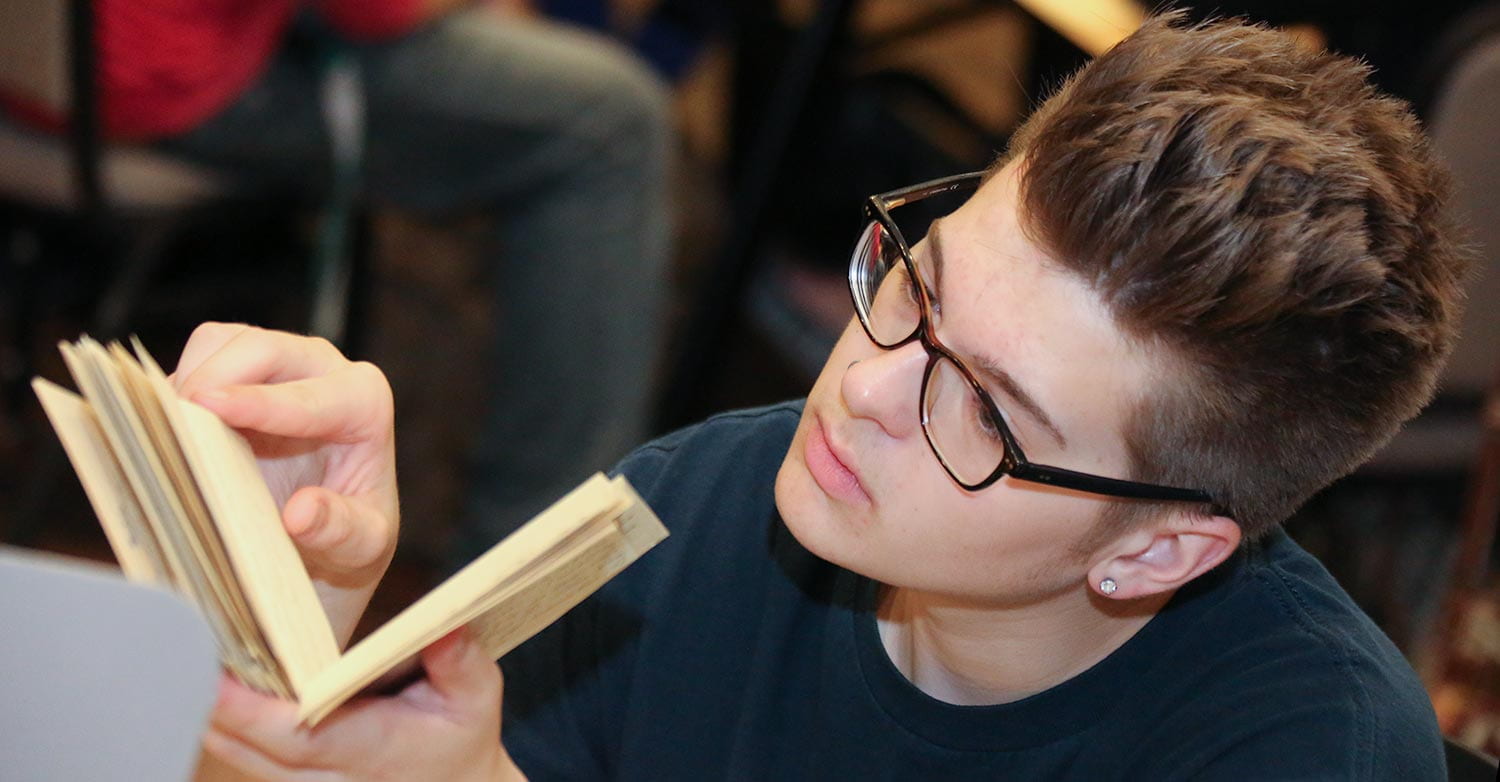UW-Green Bay Humanities students study the living by digging into records of the past

‘Everybody Dies’ makes for engaging research
What can one learn from President Kennedy’s death? Or the grief of a mother who kept a scrapbook to help her through the news that her son was missing in action during World War II? Or, the poignant 1876 diary of a farm wife who records the decline and death of her young son from consumption (tuberculosis).
For Humanities students, the answer is “quite a bit.”
The Humanities teach what it means to be human — through art, culture, history, literature and philosophy. In the course “Humanistic Studies 100: Living the Humanities: Everybody Dies,” UW-Green Bay students grapple with one of humanity’s assurances — everybody dies.
The class, and professors Caroline Boswell, Heidi Sherman and Emily Ransom, recently teamed with the UW-Green Bay Archives and Area Research Center to explore death, and the various ways in which the strengths and values that are unique to the humanities can best prepare humans to live full and happy lives.
Teams of students were provided with 40 different archival collections in the form of political cartoons, diaries, news scripts pertaining the assassinations of Presidents Kennedy and Lincoln, letters, sympathy cards, obituaries, funeral sermons, and official records such as coroners reports to examine death and dying.
“Students engage with the source, work in groups to revisit their selected source later in the Archives, and then curate the source by providing a description of it in an online content management system known as Omeka (a free and frequently used software by libraries and historical societies to present and curate digital sources and artifacts in their holdings),” explains Prof. Boswell. “So, they will be engaging in practices of professionals in the field while they learn about the humanities and its relevance to our everyday experience.”
They will also reflect and use the original materials to inspire creative writing pieces (stories, poetry, scripts, etc.) of their own making.
Deb Anderson, coordinator of the Archives and Area Research Center, said the students were very engaged thus far. Because the class is more than 100 strong, the archived selections were temporarily moved from their home on the Cofrin Library seventh floor to the Phoenix Rooms in the University Union for convenient access to the students.
“I think some were really in awe they were actually holding an actual civil war diary talking about the assassination of Lincoln,” Anderson said. “It is very gratifying to see students learn about death and dying from the voices of the past preserved in the archival records.”
Click to advance slideshow or view the album on Flickr.

– Photos by Dan Moore, Marketing and University Communication



